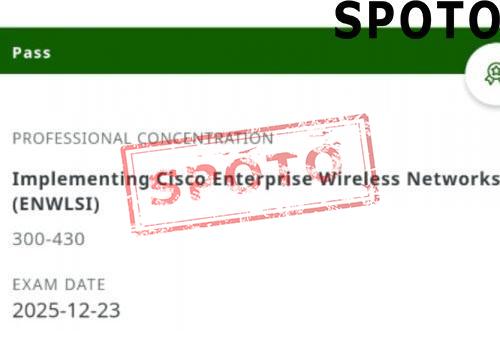
Table of Contents
1. What is a Cloud Network Engineer?
Cloud network engineers are professional IT personnel who are responsible for designing, implementing and managing networks in the cloud. They are committed to migrating system functions and network architecture to private, public or hybrid cloud environments. This process gives organizations greater autonomy and adaptability, helping to improve overall efficiency and work effectiveness.
2. What does a Cloud Network Engineer do?
A cloud network engineer is responsible for designing, implementing, and maintaining the network infrastructure of a cloud environment, such as local area networks (LANs), wide area networks (WANs), intranets, extranets, and other data communication networks. First, create and optimize the network architecture for maintaining cloud platforms such as AWS, Azure, or Google Cloud to ensure efficient and secure communication between systems and applications, and ensure high availability, performance, and scalability. Second, implement security measures such as firewalls, VPNs, and encryption to protect cloud networks and data from cyber threats, and continuously monitor the performance of cloud networks, troubleshoot connectivity issues, and resolve potential network failures. Third, use automation tools and scripting languages (such as Python, PowerShell) to automate repetitive tasks and optimize network operations. Collaboration is also one of their responsibilities, working with cloud architects and developers to integrate various cloud services such as databases, storage, and computing resources into the network, and working with DevOps, IT, and security teams to align network operations with the broader cloud infrastructure and business goals. Finally, ensure that the network complies with industry standards, regulations, and best practices, and maintain documentation of network architecture, processes, and changes, analyze network performance, and optimize configuration to reduce costs without affecting performance.
3. Career Insights: Salary, Outlook & Related Roles
(1) Cloud Network Engineer Salary
This article collates the information of major career salary websites for career reference. According to data on the glassdoor website, the expected total salary of cloud network engineers is $143,760 per year, and the average salary is $119,540 per year. The expected additional salary is $24,221 per year. Additional salary may include cash bonuses, commissions, tips, and profit sharing. According to data from the ZipRecruiter website on May 4, 2026, the average annual salary of cloud network engineers in the United States is $109,040. It is about $52.42 per hour. This is equivalent to $2,096 per week or $9,086 per month. The annual salary of cloud network engineers in the United States can reach as high as $158,000 and as low as $31,000, but most cloud network engineers currently have salaries between $89,000 and $133,500, and the highest earners have annual salaries as high as $143,000 across the United States. The average pay range for a Cloud Network Engineer varies greatly (as much as $44,500), which suggests there may be many opportunities for advancement and increased pay based on skill level, location and years of experience.
(2) Job Outlook of Cloud Network Engineer
As cloud computing technology continues to develop, enterprises are increasingly in need of professionals with cloud network skills. According to Flexera, by 2026, 94% of enterprises have adopted cloud computing in their operations. In addition, the global cloud computing market is expected to reach US$912.77 billion in 2026 and grow to approximately US$5.15 trillion in 2034, with an average annual growth rate of 21.2%.
This trend provides broad career prospects for cloud network engineers. As enterprises migrate to cloud platforms, they need professionals to design, implement, protect and manage complex network architectures across multiple public clouds and hybrid cloud environments. According to a survey of 40 US chief information officers by Jefferies, it is expected that by 2026, 70% of enterprise workloads will be migrated to the cloud, up from the current 45%.
In addition, the rapid development of artificial intelligence (AI) and the Internet of Things (IoT) has also driven the demand for cloud network engineers. The cloud AI service market is expected to reach $97.9 billion by 2026, with an average annual growth rate of 25.7%. At the same time, the amount of data generated by IoT devices continues to increase, further increasing the demand for cloud infrastructure and network management.
In summary, with the widespread application of cloud computing, AI and IoT technologies, cloud network engineers will continue to play a key role in the digital transformation of enterprises in the next few years.
(3) Similar Occupations
- Network Engineer
- Cloud Engineer
- Systems Administrator
- DevOps Engineer
- Solutions Engineer
- Infrastructure Architect
- Infrastructure Engineer
- Solutions Engineer
- Solutions Architect
- DevOps Architect
- Software Engineering Manager
- Site Reliability Engineer
- System Architect
4. What Are the Qualifications to Become a Cloud Network Engineer?
(1) Obtain a Bachelor's Degree
This career requires job seekers to have a bachelor's degree in computer science, information technology, or a related field.
(2) Develop professional skills
After analyzing 120,916 job openings related to cloud network engineers, it was found that network engineering is the most popular professional ability among employers, with about 34% of positions requiring this skill. In addition, network routing, automation technology, computer science foundation, firewall configuration, and switch management are also popular. In terms of general skills, troubleshooting ability is the skill that appears most frequently in recruitment information, followed by communication and coordination, system operation and maintenance, project management, problem solving, and planning ability.
(3) Earn Industry Certifications
When applying for infrastructure engineer positions, it is helpful to obtain certain certifications as they can help you develop the key skills and knowledge required for the position and make your resume more noticeable to employers.Some employers prefer to hire candidates with experience in sales or a related technical field, such as engineering or IT strategy. DevNet Professional certification demonstrates your ability to develop and maintain applications on Cisco platforms. With Cisco DevNet Professional certification, you will gain a unique combination of software and infrastructure skills to help you become a cloud network engineer.
5. Summarize
Cloud network engineers are professional IT personnel who are responsible for designing, implementing and managing networks in the cloud. They are committed to migrating system functions and network architecture to private, public or hybrid cloud environments. This career requires job seekers to have a bachelor's degree in computer science, information technology, or a related field,and have a deep understanding of the basic knowledge of the network. At the same time, it is also extremely important to have the corresponding professional skills certification and practical experience.










